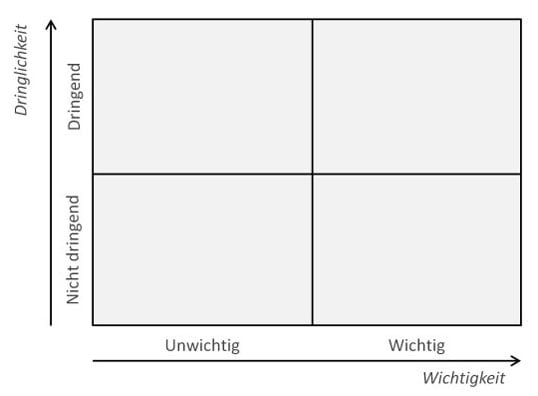How do I derive measures from the results?
Your teamecho dashboard is filling up with feedback - what's next? Here are some helpful tips on how you can work with your team to develop action plans.
Summary
- teamecho facilitates leadership tasks and saves time
- Regular, uninterrupted time to reflect on feedback from teams is important
- The Eisenhower matrix helps you to prioritize feedback and actions
- Delegating tasks and applying the Pareto principle can help you to act more effectively
Everything new and cumbersome? Don't let appearances fool you
The tasks that come with using teamecho may seem new and complex at first glance. In fact, teamecho helps you significantly with central management tasks: you maintain an overview, can make well-informed decisions, and create a conducive environment for your team to thrive.
In order for you to manage these tasks well, you need to know the perceptions of your team, critically reflect on the status quo, and take action accordingly. teamecho supports you in doing just that and ultimately enables you to perform these leadership tasks more efficiently. That is, once you have found a good teamecho routine, you will notice significant time savings.
It is important that you work with the feedback from your team members and take action to ensure that you and your team benefit from teamecho. Here are some tips on how to structure and take action on feedback.
Set up a regular schedule: In calmness (and focus) lies power
First and foremost, critical reflection and strategic thinking work best with a fresh mind and calm. Therefore, take time once every two weeks in the morning, for example, to consider your team's feedback and to organize it for yourself. In this way, you can keep an overview and uncover any connections between the various pieces of feedback. Most importantly, you can derive synergetic measures that kill several proverbial feedback-birds with one stone.
The Eisenhower Matrix
U.S. President Eisenhower was known for his decision matrix: He sorted topics that were brought to him according to importance and urgency This mapping then clearly showed where the priorities lay:
- important and urgent issues should be addressed immediately
- important but not urgent topics should be planned
- unimportant and urgent topics should be delegated
- unimportant and non-urgent issues should be discarded

You can apply this principle to feedback in teamecho: Sort selected results or comments into topics and categorize them using the Eisenhower matrix. This way, you can quickly see where you should start.
Tip: Leading also means delegating
If teamecho identifies weaknesses or obstacles, you don't have to find solutions on your own, but can also ask your team to suggest solutions. In general, consider which tasks you can hand over to experienced team members who are happy to take on more responsibility.
Timestamp: Quick win or long-term issue?
Give the feedback a timestamp: Is it an issue that can be solved quickly and easily (quick win) or is it an issue that can only be dealt with through medium to long-term measures?
You can quickly add more granularity: Which urgent and important issues can you deal with immediately (quick win), for which do you need some lead time or coordination with HR or management? Which important but not urgent topics can you plan for the next month, which need your regular attention over the next 6 months?
Tip: Take the Pareto principle (80:20 rule) to heart.
Of course it would be nice to always solve all problems and implement all necessary actions. However, this is often simply not possible. Therefore, consider which actions have the most impact and focus on these few first. According to the Pareto principle, you will be able to achieve 80% of the success with 20% of the effort - that's a pretty promising success rate 😀
Learn more about how to interpret your teamecho results.